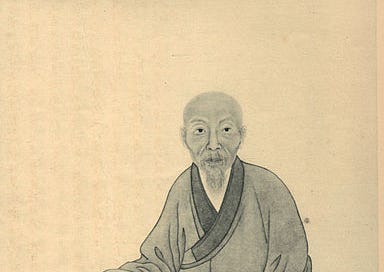
Qu Dajun1 (1630–1696) was born in China, Guangdong province in 1636. After the Ming (1368–1644) dynasty, fell in 1644, Qu joined the rebel troops of Chen Bangyan (1603–47), a fellow Guangdong poet, to fight the Qing (1644–1911), a Manchu dynasty. The Qing defeated Chen Bangyan’s troops. Like many Ming loyalists in the early Qing years, Qu Dajun became a monk but did not stay in monasteries for long. Instead, he traveled around the empire and networked with many famous literati. Qu’s most well known works were those about society and people’s lives during the Ming-Qing transition. Because of nostalgia Qu showed towards the Ming and the anti-Manchu sentiment prevalent throughout his works, the Qing state censored Qu’s writings in the eighteenth century.2 The banning of Qu Dajun’s works started during the Yongzheng reign (1723–35). From 1774 to 1788, Emperor Qianlong ordered book burnings twenty-four times. By destroying the works, including the woodblocks of Qu and his peers, the imperial project aimed to sabotage the textual basis of knowledge circulation about the Ming-Qing conflict.3
Honey, David B. The Southern Garden Poetry Society: Literary Culture and Social Memory in Guangdong. The Chinese University of Hong Kong Press, 2013.
En Li. 2017. “A Banned Book Tradition and Local Reinvention: Receptions of Qu Dajun (1630-1696) and His Works in Late Imperial China.” Frontiers of History in China 12 (3): 433–64.
Struve, Lynn A. Voices from the Ming-Qing Cataclysm: China in Tigers' Jaws. New Haven: Yale University Press, 1998.



